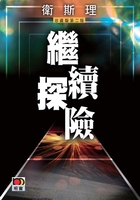A Rose for Miss Emily
William Faulkner
When Miss Emily Grierson died, our whole town went to her funeral: the men through a sort of respectful affection for a fallen monument , the women mostly out of curiosity to see the inside of her house, which no one save an old manservant—a combined gardener and cook—had seen in at least ten years.
It was a big, squarish frame house that had once been white, decorated with cupolas and spires and scrolled balconies in the heavily light-some style of the seventies, set on what had once been our most select street. But garages and cotton gins had encroached and obliterated even the august names of that neighborhood; only Miss Emily’s house was left, lifting its stubborn and coquettish decay above the cotton wagons and the gasoline pumps—an eyesore among eyesores. And now Miss Emily had gone to join the representatives of those august names where they lay in the cedar-bemused cemetery among the ranked and anonymous graves of Union and Confederate soldiers who fell at the battle of Jefferson.
Alive, Miss Emily had been a tradition, a duty, and a care; a sort of hereditary obligation upon the town, dating from that day in 1894 when Colond Sartoris, the mayor—he who fathered the edict that no Negro woman should appear on the streets without an apron—remitted her taxes, the dispensation dating from the death of her father on into perpetuity. Not that Miss Emily would have accepted charity. Colonel Sartoris invented an involved tale to the effect that Miss Emily’s father had loaned money to the town, which the town, as a matter of business, preferred this way of repaying. Only a man of Colonel Sartoris’ generation and thought could have invented it, and only a woman could have believed it.
When the next generation, with its more modern ideas, became mayors and aldermen , this arrangement created some little dissatisfaction. On the first of the year they mailed her a tax notice. February came, and there was no reply. They wrote her a formal letter, asking her to call at the sheriff’s office at her convenience. A week later the mayor wrote her himself, offering to call or to send his car for her, and received in reply a note on paper of an archaic shape, in a thin, flowing calligraphy in faded ink, to the effect that she no longer went out at all. The tax notice was also enclosed, without comment.
They called a special meeting of the Board of Aldermen. A deputation waited upon her, knocked at the door through which no visitor had passed since she ceased giving china-painting lessons eight or ten years earlier. They were admitted by the old Negro into a dim hall from which a stairway mounted into still more shadow. It smelled of dust and disuse—a close, dank smell. The Negro led them into the parlor. It was furnished in heavy, leather-covered furniture. When the Negro opened the blinds of one window, they could see that the leather was cracked; and when they sat down, a faint dust rose sluggishly about their thighs, spinning with slow motes in the single sun-ray. On a tarnished gilt easel before the fireplace stood a crayon portrait of Miss Emily’s father.
They rose when she entered—a small, fat woman in black, with a thin gold chain descending to her waist and vanishing into her belt, leaning on an ebony cane with a tarnished gold head. Her skeleton was small and spare; perhaps that was why what would have been merely plumpness in another was obesity in her. She looked bloated, like a body long submerged in motionless water, and of that pallid hue. Her eyes, lost in the fatty ridges of her face, looked like two small pieces of coal pressed into a lump of dough as they moved from one face to another while the visitors stated their errand.
She did not ask them to sit. She just stood in the door and listened quietly until the spokesman came to a stumbling halt. Then they could hear the invisible watch ticking at the end of the gold chain.
Her voice was dry and cold. “I have no taxes in Jefferson. Colonel Sartoris explained it to me. Perhaps one of you can gain access to the city records and satisfy yourselves.”
“But we have. We are the city authorities, Miss Emily. Didn’t you get a notice from the sheriff, signed by him?”
“I received a paper, yes,”Miss Emily said. “Perhaps he considers himself the sheriff... I have no taxes in Jefferson.”
“But there is nothing on the books to show that, you see. We must go by the—”
“See Colonel Sartoris. I have no taxes in Jefferson.’’
”But, Miss Emily—“
”See Colonel Sartoris. “ (Colonel Sartoris had been dead almost ten years. )”I have no taxes in Jefferson. Tobe!“The Negro appeared, ”Show these gentlemen out.“
II
So she vanquished them, horse and foot, just as she had vanquished their fathers thirty years before about the smell. That was two years after her father’s death and a short time after her sweetheart—the one we believed would marry her—had deserted her. After her father’s death she went out very little; after her sweetheart went away, people hardly saw her at all. A few of the ladies had the temerity to call, but were not received, and the only sign of life about the place was the Negro man—a young man then—going in and out with a market basket.
“Just as if a man—any man—could keep a kitchen properly, ”the ladies said; so they were not surprised when the smell developed. It was another link between the gross, teeming world and the high and mighty Criersons.
A neighbor, a woman, complained to the mayor, Judge Stevens, eighty years old.
“But what will you have me do about it, madam?” he said.
“Why, send her word to stop it,” the woman said, “Isn’t there a law?”















